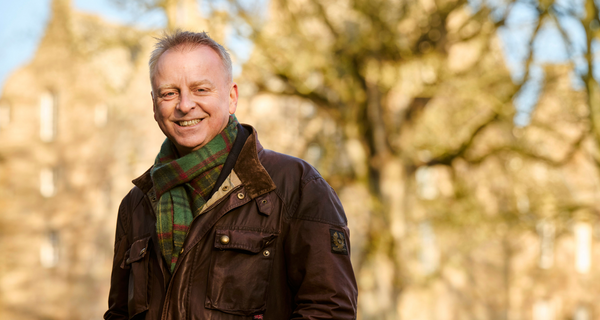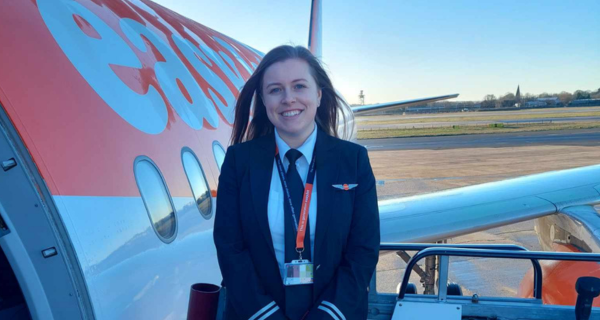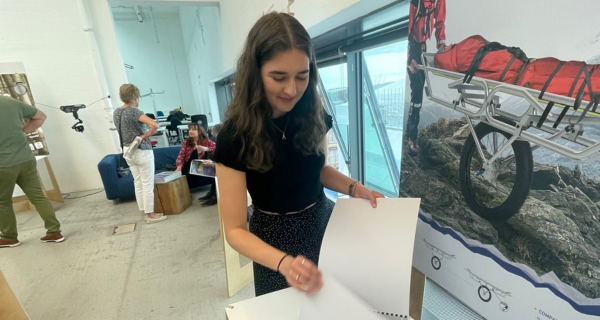Our former pupils go on to find success in a wide range of careers and industries. One former pupil, Philip Long, Chief Executive at National Trust Scotland, is making a real impact on Scotland's landscape and heritage, and we were lucky enough to sit down with him and find out more about his experience as a former student at Stewart's Melville College and his career journey to date.
You have been in the role for a while. What is your ambition for Scotland?
The value of the National Trust Scotland and the role it plays in caring for places and green spaces became even more important in people's minds during the pandemic. The inspiration and comfort that people experience when they are close to nature, enjoying the solace that nature brings, is all the more acute when other circumstances are challenging. Therefore it isn’t surprising that the pandemic inspired the development of our Nature, Beauty and Heritage For Everyone Strategy, which is all about caring for and making accessible places of extraordinary natural and human made beauty and heritage.
What advice would you give pupils who are passionate about the Arts but worried about the range of opportunities it will give them?
Interestingly, I often think that in a career like mine it could have been really helpful to have done a degree in Law and then studied Art. It would have helped an enormous amount in making judgements in the leadership roles I have undertaken.
Most people will be really surprised at the range of opportunities there are within Arts and Culture and Heritage. There are so many jobs in these areas, from Law, Commercial Enterprise and Marketing, to Accountancy and ICT. So don’t be put off studying the Arts because you think it is going to be too competitive, or your future options too limited. And most importantly be pushy – ask your teachers and tutors about the careers that exist in the areas that interest you most.
You have held a number of leadership roles over your career. How can our pupils start honing their leadership skills at school?
There are so many terrific opportunities at school, and in higher education, to get leadership experience in areas that interest you, whether it's Art History or Ski Club or Rugby Club, get involved in these things and find out how to make other people enjoy it with you.
What are your top tips for looking after your mental health?
Try and develop your own self awareness about what makes you content and happy and in harmony with the world. It’s also very important to look out for your friends, fellow pupils and family's wellbeing and to talk. Ask questions and don't be afraid or ashamed of discussing something that may be concerning you.
I am pleased to see we live in a world now where we are much more sensitive to people's wellbeing and to people's differences. But developments in social media can open people up to criticism by others and it’s important to be brave and remove yourself when you feel it isn’t good for you and seek out friends that you can trust and have conversations with.
What is your favourite memory from School?
Great friendships. I was very involved in the Arts and my friends and I got a band together and we had great fun doing that. There was a fantastic Art department when I was there, led by a guy called Mr MacMillan and I was very fortunate in having a particularly good teacher in the Art Department called Gus MacLean. He was terrific and passionate about his subject and he brought a lot of innovation to how it was taught. He introduced Art History into the classes, and when he saw that I seemed to have an ability with it he arranged for me to do the Oxford and Cambridge A level, which the school didn’t do, and I managed to get a really good mark which helped me get into university.
How did the School help you to get to where you are today personally and professionally?
It recognised the things that I was particularly interested in and supported me in following them. It wasn't a one size fits all school and specific teachers understood what I would need to do to progress in something that I had a natural interest and a bit of an ability in.
There is no doubt that the range of extracurricular stuff is brilliant. I used to love doing all the outdoor stuff. I remember we used to go up to Loch Earn, go hillwalking up Ben Vorlich and we would bunk in a place with the most uncomfortable mattresses ever. I can still feel how uncomfortable they were. The teachers would give up their time to do so many things whether that was ski trips or hillwalking, or all the great privileges that a school like SMC offers.
What advice would you give young people weighing up their future choices?
I don’t think it is necessary to decide on the direction you are going to take for the rest of your life. I think you should follow something you find really interesting and if you aren't sure what you want to do then do something that has the potential to give you the flexibility to follow whatever career you may end up pursuing.
What is your personal motto?
Never think that you can’t learn from others – always be open to their expertise.
Thank you very much to Philip Long. The work you are doing at the National Trust Scotland is so important and I am sure our students and former students will be inspired by your advice.






